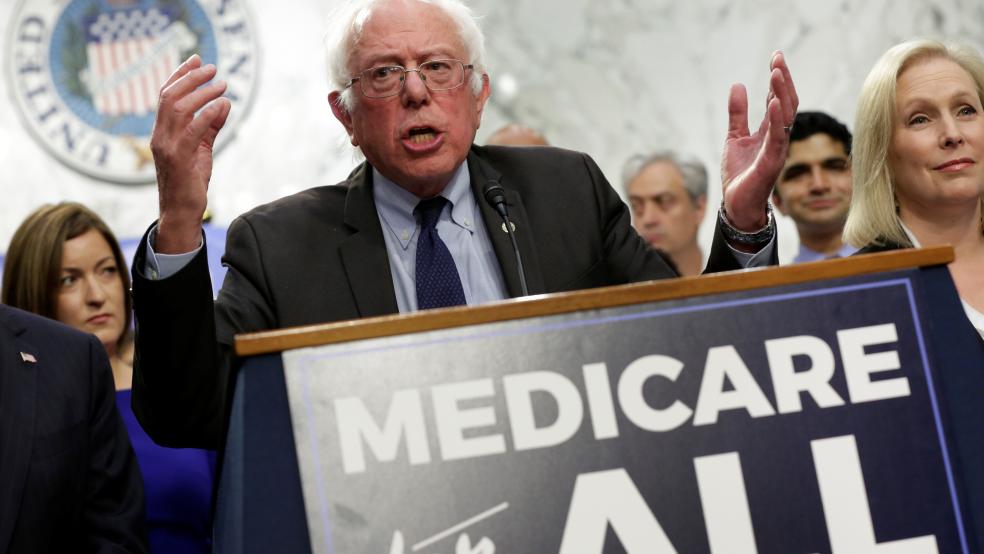Democrats are making it clear that they’re serious about moving forward on universal health care.
Speaker Nancy Pelosi (D-CA) said last week that she supports holding hearings on Medicare-for-All legislation, and on Tuesday House Budget Committee chair Rep. John Yarmuth (D-KY) sent a letter to the Congressional Budget Office requesting a comprehensive analysis of how a single-payer health system would work in the U.S.
Yarmuth said that although the Affordable Care Act significantly reduced the number of people without health care coverage, “millions of Americans remain uninsured, and millions more – even though they have insurance – struggle to afford their health care costs.” While many countries successfully provide “near-universal coverage through single-payer systems,” there are different paths the U.S. could take to build such a system. As they consider various options, lawmakers “will face many important decisions that could have major implications for federal spending, national health care spending, and access to care.”
Yarmuth specifically requested an analysis of these issues:
- how the system would be administered;
- who would be eligible for coverage and how they would be enrolled;
- what services would be covered and what cost-sharing requirements, if any, would be imposed;
- what role, if any, private insurers would play;
- whether other public programs (such as Medicaid, the Veterans Health Administration, the Indian Health Service, and the Military Health System) would continue to exist;
- how provider payment rates would be established;
- what participation rules would be established for providers;
- what methods would be used to contain costs;
- how the system would be financed.
The CBO report will provide a starting point for upcoming Budget Committee hearings “to review potential ways to achieve affordable, high-quality health care coverage for everyone, including Medicare for All.” Yarmuth added that an overall cost estimate was not his main objective: “The report would not necessarily provide CBO’s estimate of the effects of any particular proposal for a single-payer system on federal spending or national health care spending but would, to the extent feasible, provide a qualitative assessment of how the choices with respect to major design issues would affect such spending.”
The bottom line: MarketWatch’s Steve Goldstein said the request signals that Democrats are serious about “moving beyond Obamacare,” but that given Republican control of the Senate, “there’s virtually no chance of a single-payer system being enacted this Congress.”



